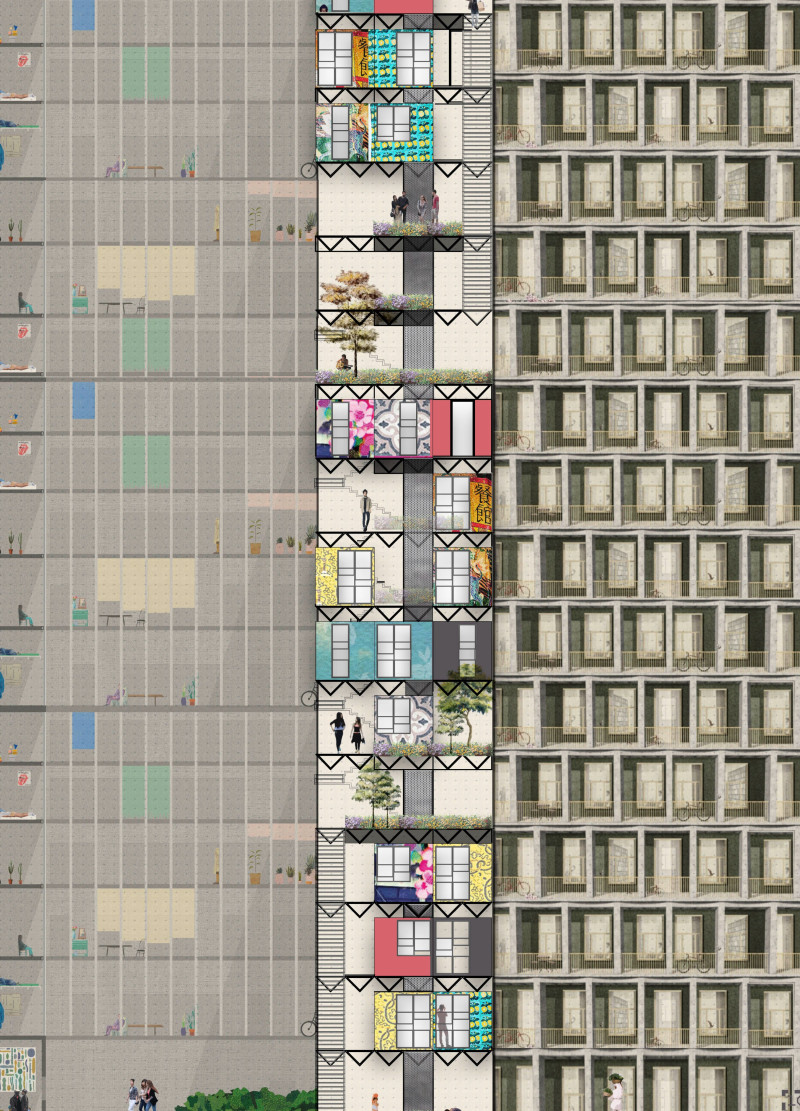5 key facts about this project
The Nexus Pixel Homes project exhibits a modern architectural approach intended for the densely populated urban setting of Hong Kong. The design focuses on optimizing living space while enhancing community interaction through innovative modular housing solutions. The primary objective of this architectural project is to address the growing demand for flexible, sustainable, and accessible living environments in urban settings.
The Nexus Pixel Homes form a collection of adaptable residential units that serve various lifestyle needs. Each unit functions independently yet can be combined with others to accommodate families or communal living arrangements. The design promotes a sense of community, with shared spaces such as gardens and patios that encourage social interaction among residents while integrating greenery within the urban fabric.
Modular Design and Spatial Versatility
A defining characteristic of the Nexus Pixel Homes is its modular design. By utilizing prefabricated units, the project allows for quick assembly and adaptability to different site conditions or resident needs. Each pixel unit can be customized, providing a variety of configurations to cater to singles, couples, and families. This flexibility is a significant departure from traditional housing designs that often limit residents to predetermined layouts.
The spatial arrangement within the Nexus Pixel Homes enhances movement and accessibility. The vertical layout promotes efficient use of land, allowing for various stacked configurations that optimize light and airflow. Residents can enjoy open communal spaces while retaining privacy within their individual units. This interplay between public and private areas creates a dynamic living environment conducive to community development.
Community Integration and Environmental Sustainability
Integral to the Nexus Pixel Homes is its emphasis on community engagement and environmental sustainability. The project incorporates green roofs and communal gardens, which not only provide essential green spaces but also support local biodiversity. Solar panels installed on the building's surfaces contribute to the energy efficiency of the units, demonstrating a commitment to reducing the ecological footprint.
In addition to energy efficiency, the architecture integrates composting systems, addressing waste management while promoting ecological awareness among residents. The layout encourages social interaction and collaboration in sustainable practices, further strengthening community ties.
The Nexus Pixel Homes stand out due to their unique approach to urban living, focusing on flexibility, community-oriented design, and sustainability. This project exemplifies how thoughtful architectural design can solve contemporary urban challenges by fostering connections among residents while promoting an environmentally conscious lifestyle.
For a deeper understanding of the Nexus Pixel Homes and its architectural concepts, it is beneficial to explore the architectural plans, sections, and designs presented. Engaging with these materials can offer valuable insights into the project’s innovative approach and vision for future urban housing.


























